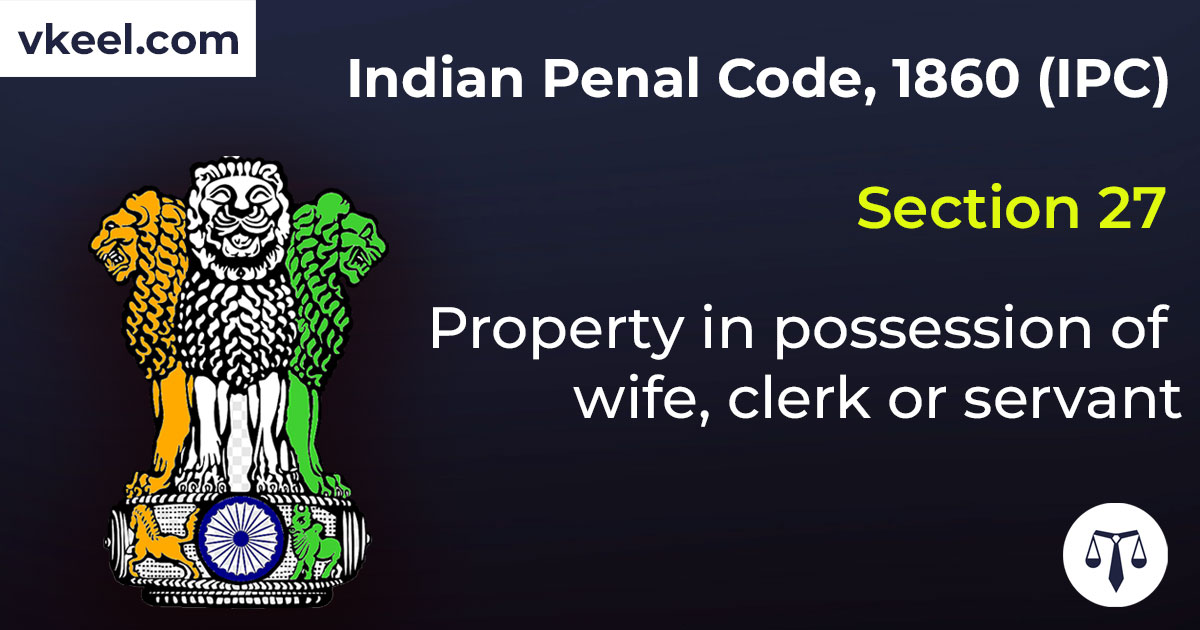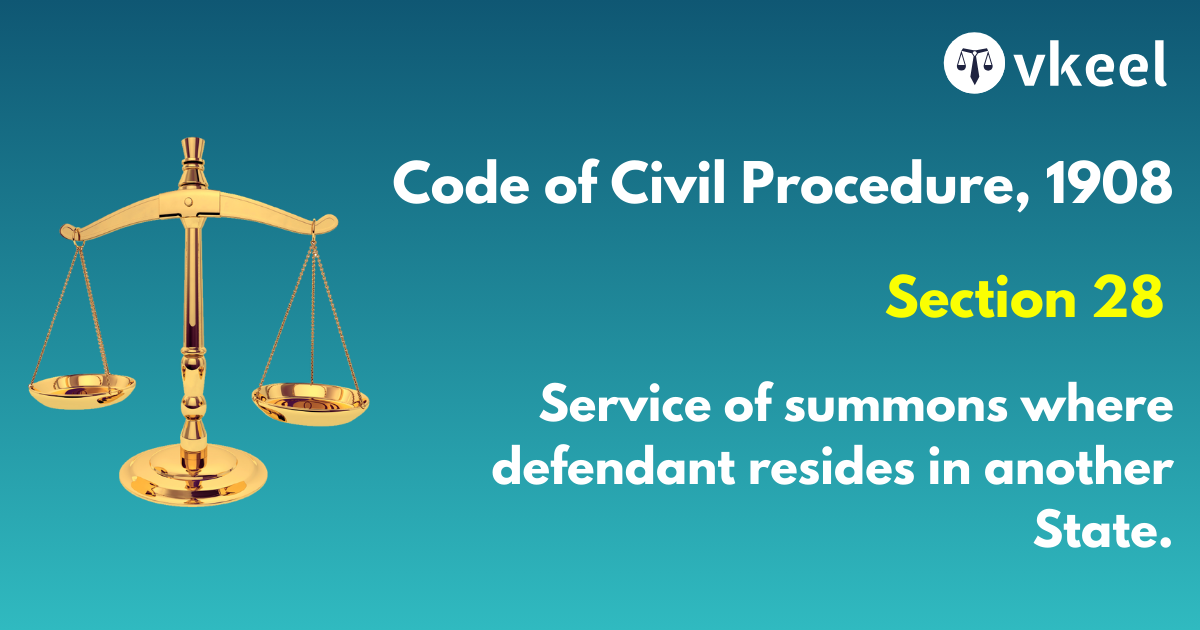Section 27 Indian Penal Code 1860 (IPC) – Property in possession of wife, clerk or servant
By Vkeel Team
Table of Contents
Description
“Section 27 Indian Penal Code 1860 (IPC)”
When property is in the possession of a person’s wife, clerk or servant, on account of that person, it is in that person’s possession within the meaning of this Code.
Explanation.—A person employed temporarily or on a particular occasion in the capacity of a clerk or servant, is a clerk or servant within the meaning of this section.
Meaning of Section 27 of IPC
Section 27 of the Indian Penal Code deals with situations where a person has entrusted property to his wife, clerk or servant, and the wife, clerk or servant misappropriates or converts that property to his or her own use. This section provides for the punishment of such an offence.
Scope of Section 27 of IPC
Section 27 of the Indian Penal Code applies when the property has been entrusted to the wife, clerk or servant by the owner. The property could be any movable property, such as money, jewelry, or any other article of value. The section is applicable when the person entrusted with the property misappropriates or converts it to his or her own use without the owner’s consent.
It is important to note that this section only applies when the person entrusted with the property is the wife, clerk or servant of the owner. If the property is entrusted to any other person, this section will not be applicable.
Penalties for the offence
The punishment for the offence under Section 27 of the Indian Penal Code is imprisonment for a term which may extend to three years or with fine or with both. The offence is non-bailable, which means that the accused cannot be released on bail unless the court decides otherwise.
It is important to note that the offence under Section 27 is a cognizable offence, which means that the police can arrest the accused without a warrant. The offence is also triable by a Magistrate of the first class.
Exceptions to the offence
Section 27 of the IPC provides for two exceptions to the offence. The first exception is when the property is taken by the wife, clerk or servant with the consent of the owner. In such a case, the offence under this section will not be applicable.
The second exception is when the property is taken by the wife, clerk or servant in good faith and for the purpose of protecting the owner’s interests. For example, if the wife takes the property to prevent it from being stolen, she would be exempted from the offence under this section.
Conclusion
Section 27 of the Indian Penal Code deals with the offence of “Property in possession of wife, clerk or servant”. The section applies when a person entrusts property to his wife, clerk or servant, and the property is misappropriated or converted to the wife, clerk or servant’s own use without the owner’s consent. The punishment for the offence is imprisonment for up to three years, a fine, or both. The section provides for two exceptions, which are when the property is taken with the owner’s consent or taken in good faith for the purpose of protecting the owner’s interests.
Desctiption Source: indiacode
Disclaimer:
The information provided in the article is for general informational purposes only, and is not intended to constitute legal advice or to be relied upon as a substitute for legal advice. Furthermore, any information contained in the article is not guaranteed to be current, complete or accurate. If you require legal advice or representation, you should contact an attorney or law firm directly. We are not responsible for any damages resulting from any reliance on the content of this website.












